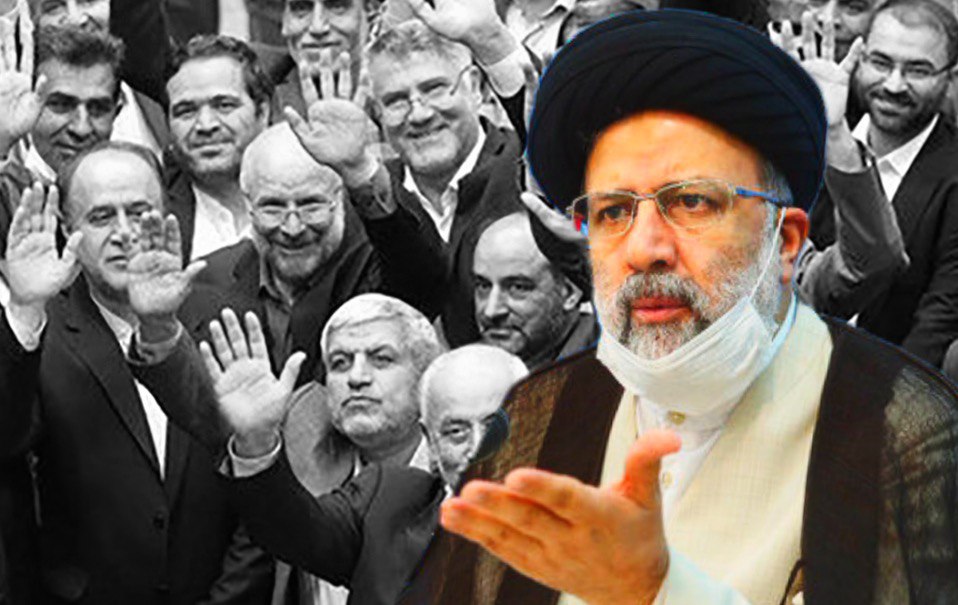Qalibaf enters
Qalibaf enters: According to Iran Gate, recent statements by one of the government-supporting representatives in the eleventh parliament have also brought Mohammad Bagher Qalibaf into the SUV Gate case. Every day, new comments from representatives and some government officials are heard, which clarify our understanding of the bribery case involving 75 representatives from the Ministry of Industry, Mine, and Trade more than before.
Probably no one expected that the allocation of 73 Fidelity vehicles and 2 Dignity vehicles to parliament representatives by the Ministry of Industry, Mine, and Trade would create such a deep rift between the government and the revolutionary parliament—a rift that has now paved the way for a political crisis between the executive and legislative branches. This report is the second part of a file that deals with Ebrahim Raisi’s revenge against his former friends in Baharestan. The first part pointed to the roots of this crisis, and now in the present report, the recent pursuit of this case is addressed.
Qalibaf enters
The recent statements of Hossein Jalali, a representative from Rafsanjan in the eleventh parliament, have also involved the Speaker of the Parliament in the bribery case of representatives from the government. According to this controversial and government-supporting representative, Mohammad Bagher Qalibaf was not only aware of the details of the allocation of 75 vehicles to representatives but also approved of this action by the Ministry of Industry, Mine, and Trade and his colleagues in Baharestan.
Jalali, who is a supporter of Ebrahim Raisi’s government in parliament and has a history of heading the office of Mohammad Taghi Mesbah Yazdi, has made other noteworthy statements. These statements clearly indicate the high level of conflict between the government and parliament and also show the government’s efforts to clear the Fatemi Amin case in this political scandal.
Overall, the most important part of Jalali’s statements relates to his sharp and direct criticisms of the parliament’s presidium, particularly Mohammad Bagher Qalibaf. He stated that Qalibaf was certainly aware of the details of this incident and approved the entire process. Now we have to wait and see if the Speaker of Parliament or the presidium will respond to these statements.
Raisi’s clumsy balancing act
Among all the comments and tweets made by representatives and some government and even judicial officials, two have special significance. One is the report of the special inspector appointed by Raisi to follow up on this case, and the other is these statements by Hossein Jalali, a radical representative and government supporter in parliament. In both cases, the government’s efforts to whitewash Fatemi Amin and, in a broader view, to clear the government’s name from bribery are clearly visible.
The special inspector appointed by Raisi had stated that Minister of Industry, Mine, and Trade, Seyed Reza Fatemi Amin, was unaware of the allocation of SUVs to representatives. Jalali, who carries the label of ‘government lawyer,’ made a strange claim and said that these vehicles were given to representatives in July 2021 and had nothing to do with the first impeachment of Fatemi Amin. In fact, this super-revolutionary parliamentary representative, with these statements, not only involved Qalibaf in this case but also claimed that the bribery of representatives by the Ministry of Industry, Mine, and Trade took place during Hassan Rouhani’s presidency and is unrelated to the current government.
However, according to statements by the whistleblower representatives published in the media, it is quite clear that these vehicles were provided to representatives and parliament staff in the summer of 2022, before the first impeachment of Fatemi Amin, and simultaneously with the rising criticisms of the performance of the then Minister of Industry, Mine, and Trade.
In fact, the government is trying to take revenge on the revolutionary parliament in this game. On the other hand, it intends to attribute the embarrassment of giving bribes to others, and who better than Hassan Rouhani and the twelfth cabinet? But it has done this so clumsily that even the statements made from government platforms and government-supporting representatives are in clear contradiction with each other, and audiences with a little intelligence can notice these contradictions.
Raisi is stuck
However, statements by representatives like Ahmad Alirezabeigi, who first exposed this case, show that the involvement of Raisi’s government ministers and officials in this matter is very significant and undeniable. In one of Alirezabeigi’s controversial interviews, he mentioned a shell company, and when its phone number was called, according to this parliamentary representative, the sound of chickens and roosters was heard, and no one responded.
But when looking at the list of shareholders of this company, one notices the presence of Mohammad Hadi Zahedi Vafa, the former acting Minister of Welfare, Mohammad Hossein Hashemi Golpayegani, the brother of the head of the Headquarters for the Promotion of Virtue and Prevention of Vice, and also Seyed Morteza Ahmadzadeh, one of the senior managers of Channel Three of IRIB.
In fact, the company that allocated a significant number of vehicles to representatives was not only a shell but also belonged to managers of Ebrahim Raisi’s government. Therefore, his efforts to escape responsibility for bribing representatives not only lead nowhere but are like struggling in a quagmire, causing him and his allies to sink even further.
English
View this article in English

